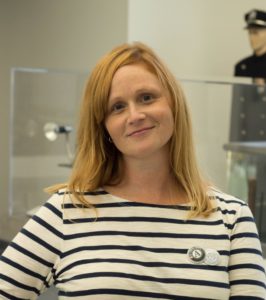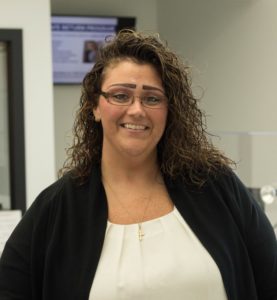
Spotlight on PAARI
Voices for National Service has launched a blog series profiling how national service members and programs are at the forefront of addressing our nation’s most pressing problems. View the entire series here, and be sure to download one-page versions for use in meetings with your legislators.
The United States is in the midst of an unprecedented opioid crisis, placing burdens on workplaces, the health care system, families, states, and communities – and destroying and often ending lives. Recognizing the severity of the epidemic and the important role national service can play in addressing this challenge, the Corporation for National and Community Service (CNCS) has significantly increased its support of opioid abuse prevention, education, reduction, and recovery programming. In Massachusetts, 22 AmeriCorps members serve as Recovery Coaches and Program Coordinators in police departments across the state through the Police Assisted Addiction & Recovery Initiative (PAARI). Th e AmeriCorps members help opioid users access treatment and recovery services, prevent opioid overdose deaths, and build the capacity of non-arrest law enforcement programs.
PAARI’s AmeriCorps members care deeply about the communities in which they serve and are passionate about helping those suff ering with substance abuse as well as their families. Most are recovering addicts themselves.

Erin Berecz works as a PAARI AmeriCorps Recovery Coach in the behavioral health unit of the Lynn, MA Police Department. She connects with people in her community who are struggling with substance use disorder and guides them through the treatment and recovery process. Erin has a deep understanding of overcoming these challenges because she has navigated this path herself.
Erin struggled with alcohol addiction for about 15 years. After multiple attempts at treatment, she has been sober for more than five years. She calls her path to recovery a spiritual journey that involved connecting herself to her family and committing herself to change. She then found her calling by serving as a Recovery Coach and has just begun what she hopes will be a long-term career in recovery and treatment work.
Erin has reached her recovery goals through hard work and the guidance and inspiration of her parents and young sons. But she realizes that not everyone has the strong support network she had, so she works with PAARI to offer help and hope to those who might not have anyone else. She works on the ground in critical moments coaching people in her community who have just come forward seeking help for their substance use disorder or have recently overdosed. She sees addiction both through the eyes of someone in long term sobriety, and as a mother, finds herself relating strongly to the family members of her mentees as well.
Margie Taylor, a PAARI Program Coordinator with the Burlington, MA Police Department, came in close contact with members of her community who were struggling with opiate addiction when she worked as an emergency room nurse. As a resident of nearby Wilmington, the burgeoning opioid epidemic brought a new reality to her professional life. It took on a more personal meaning when after several surgeries for an athletic injury, she found herself struggling with opiate dependence and began a path towards recovery.

Through a close friend from her recovery program, Margie learned about PAARI and joined the AmeriCorps program to share her expertise and personal experience to help grow the organization in Burlington and neighboring communities. Working with PAARI, she is able to help not only those struggling with substance use disorders but also their families. Using her personal recovery network along with Burlington PD resources, the PAARI network, and relationships with many key stakeholders locally, Margie has found that in some capacity nearly everyone she encounters is able to get treatment eventually.
Since she began serving with the Burlington PD in October 2017, Margie has noticed a marked change in law enforcement culture. The police see drug-related crimes differently, and they really want to give members of their community the option to seek treatment because they see how effective it has been. The Burlington Police Chief approves of these life-saving approaches, and now the whole department is on board. Community relationships with the Burlington PD have improved tremendously as a result.
Erin and Margie are just two shining examples of the work being done by AmeriCorps members in the PAARI program, but there are many PAARI AmeriCorps members making a difference across Massachusetts. Since October 2017, PAARI members have provided support and information to more than 3,400 people struggling with a substance use disorder and their loved ones. AmeriCorps has played an important part in the overall response and recovery effort addressing the devastating substance abuse crisis in Massachusetts.
Since CNCS expanded its investment to in opioid and substance abuse programs in 2017 more than 1,200 AmeriCorps and Senior Corps members have been deployed to focus on prevention, reduction, and recovery, making a tremendous impact in countless communities in Massachusetts – and across the nation.